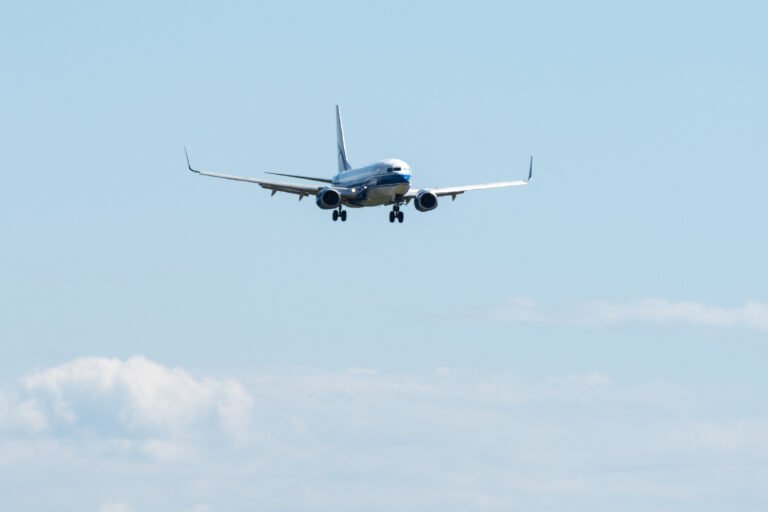Aerospace precision fasteners are essential components in aircraft manufacturing and maintenance. Their primary function is to connect various structural parts, ensuring the stability, safety, and reliability of the aircraft. The operating environment of an aircraft is highly demanding, involving high speeds, high temperatures, high pressures, and low temperatures, among other extreme conditions. As such, aerospace precision fasteners must meet a set of stringent requirements. This article will discuss the requirements, common materials, and their advantages and disadvantages in detail.
Ⅰ. Main Requirements for Aerospace Precision Fasteners
- High Strength and Fatigue Resistance
- Aircraft undergo significant forces during flight, including acceleration, deceleration, vibration, and air turbulence. Fasteners must have sufficient strength to withstand these forces while also offering excellent fatigue resistance to ensure long-term stability and safety.
- Outstanding Corrosion Resistance
- The aerospace environment exposes fasteners to various corrosive elements, such as moisture, chemicals, and salt, especially for aircraft operating in coastal or humid areas. The materials used in fasteners must have strong resistance to corrosion to avoid failure.
- High and Low-Temperature Performance
- Aircraft experience extreme temperature variations, with high temperatures around engines and low temperatures at cruising altitudes. Aerospace fasteners must maintain their strength and toughness at both high and low temperatures to ensure reliable performance.
- Vibration and Shock Resistance
- Aircraft are subjected to intense vibrations and shock loads during flight. Fasteners must be designed to remain secure, preventing loosening or breakage under these conditions. Vibration and shock resistance is crucial for maintaining structural integrity.
- Sealing Capability
- In aircraft fuel, hydraulic, and pneumatic systems, sealing performance is critical. Fasteners need to ensure tight seals to prevent leaks, which could affect the proper functioning of the systems.
- Lightweight Design and High Strength
- Aircraft are highly weight-sensitive. Precision fasteners must be designed to be lightweight while still providing the necessary strength to withstand operational forces. Reducing weight helps improve fuel efficiency and payload capacity.
- Ease of Maintenance
- The design of aerospace fasteners should facilitate easy inspection, maintenance, and replacement to minimize downtime during aircraft servicing. This is particularly important for long-duration flights where quick and efficient maintenance is essential.
Ⅱ. Common Materials for Aerospace Precision Fasteners
- Stainless Steel
- Common Grades: AISI 304, 316, 410
- Advantages:
- Excellent corrosion resistance, especially for parts exposed to moisture, chemicals, and saltwater.
- High strength, suitable for bearing significant loads.
- Disadvantages:
- Heavier than other materials, which may not be ideal for lightweight applications.
- Applications:
- Used for external components and structural connections, particularly in parts with high corrosion resistance requirements.
- Aluminum Alloys
- Common Grades: 2024, 7075, 6061
- Advantages:
- Low density and high strength, ideal for lightweight applications.
- Good corrosion resistance, especially when anodized.
- Disadvantages:
- Lower high-temperature resistance than steel or titanium alloys, and susceptible to thermal stress.
- Applications:
- Commonly used in aircraft fuselage structures, engine parts, and fasteners for lightweight applications.
- Titanium Alloys
- Common Grades: Ti-6Al-4V
- Advantages:
- Exceptional strength-to-weight ratio, high resistance to corrosion and high temperatures.
- Excellent fatigue resistance, making them suitable for critical components.
- Disadvantages:
- High cost and difficult to machine.
- Applications:
- Used in high-performance aerospace applications, such as engine components, turbine blades, and structural fasteners in high-stress areas.
- Nickel-Based Alloys
- Common Grades: Inconel 718, Monel 400
- Advantages:
- Exceptional high-temperature resistance and corrosion resistance, particularly in high-pressure and high-temperature environments.
- Excellent strength and fatigue resistance, suitable for parts under high stress.
- Disadvantages:
- Very expensive and difficult to process.
- Applications:
- Typically used in aerospace engines, turbine components, and high-stress parts exposed to extreme conditions.
- Copper Alloys
- Common Grades: C17000, C17200
- Advantages:
- Excellent electrical and thermal conductivity, ideal for electrical connections.
- Good resistance to corrosion, especially in high-temperature environments.
- Disadvantages:
- Lower strength than other materials, not suitable for heavy load-bearing applications.
- Applications:
- Used for electrical connections and low-load fasteners in the aircraft electrical systems.
III. Advantages and Disadvantages of Aerospace Precision Fasteners
- Advantages:
- Outstanding Performance in Extreme Environments: Aerospace fasteners, made from high-performance materials, can operate reliably in the extreme conditions of aviation, ensuring the safety and stability of the aircraft.
- Strength and Lightweight Design: Materials like aluminum and titanium alloys offer a great balance between strength and weight reduction, improving the overall fuel efficiency and payload capacity of the aircraft.
- Corrosion and High-Temperature Resistance: The selection of materials ensures that fasteners maintain their performance even in highly corrosive environments and high-temperature areas, extending the service life of the aircraft.
- Disadvantages:
- High Cost: Premium materials like titanium alloys and nickel-based alloys are costly, leading to higher production and maintenance costs.
- Manufacturing Difficulty: Some materials, particularly titanium and nickel alloys, are challenging to machine and require specialized manufacturing processes, which increase production complexity.
- Weight Issues: Although most aerospace fasteners are designed to be lightweight, certain applications requiring extreme strength may still involve materials that are heavier than others, impacting overall weight reduction efforts.
Ⅳ. Future Trends
- Development of New Lightweight Alloys
- As materials science advances, new lightweight alloys, such as magnesium-based alloys and advanced aluminum alloys, will be developed. These materials will offer improved strength and corrosion resistance while further reducing the weight of aerospace fasteners.
- Smart Fasteners
- The integration of sensors into aerospace fasteners is a growing trend. Smart fasteners can monitor the condition of the fastener in real-time, detecting loosening, fatigue, and corrosion. This capability will significantly enhance aircraft safety and operational efficiency.
- Green Manufacturing
- With increasing environmental regulations, the aerospace industry will focus more on environmentally friendly manufacturing processes. This includes reducing harmful emissions, optimizing production to minimize waste, and using more sustainable materials.
- Additive Manufacturing (3D Printing)
- The use of additive manufacturing in producing aerospace fasteners is expected to grow. 3D printing allows for the creation of complex, lightweight designs with minimal material waste, providing significant advantages in terms of performance, cost, and production speed.
Ⅴ. Conclusion
Aerospace precision fasteners are crucial in ensuring the safety, reliability, and performance of aircraft. Choosing the appropriate materials and optimizing their design can significantly improve the fasteners' performance, while also reducing maintenance costs and extending the lifespan of critical components. As materials and manufacturing technologies continue to evolve, aerospace fasteners will become lighter, stronger, smarter, and more sustainable, contributing to the continued advancement of the aerospace industry.


